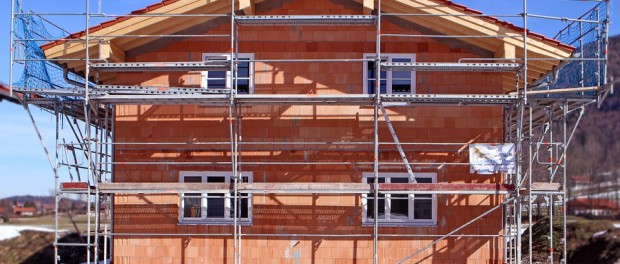Construction skills shortage worsens but architects yet to feel the effects

The RIBA has said its members have yet to feel the post-referendum skills shortage which has been reported elsewhere in the construction industry by the Federation of Master Builders (FMB)
The FMB’s State of Trade survey for the fourth quarter of 2016 showed that almost half of construction SMEs had reported difficulties hiring roofers, while shortages of electricians and roofers are at their highest in four years.
Brian Berry, chief executive of the FMB, said: ‘We’ve been experiencing a severe shortage of bricklayers and carpenters for some time. These latest statistics show skills shortages are now seeping into other key trades such as roofing and plumbing.
‘Of the 15 key trades and occupations we monitor, 40 per cent show skills shortages at their highest point since 2013.’
He also said that the immigration arrangements that the government makes to replace the EU’s freedom of movement policy must ensure that enough workers are available for construction projects.
He said: ‘Our sector relies heavily on skilled labour from the EU: 12 per cent of the British construction workforce is of non-UK origin. As the construction industry represents about 7 per cent of UK GDP, it’s in no one’s interest to pull the rug out from under the sector by introducing an inflexible and unresponsive immigration system.’
It’s in no one’s interest to pull the rug out from under the sector by introducing an inflexible and unresponsive immigration system
However, an RIBA spokesman said it had not picked up these concerns from the practices it monitors for its monthly Future Trends survey, a bellwether of confidence in the industry. He said: ‘Our latest Future Trends survey suggests that there is no immediate evidence for a skills shortage affecting architecture practices, but it is uncertain whether the long-term impact of Brexit will lead to a shortage.
‘Together with other built environment institutes, we have identified skills as the biggest challenge facing the sector in the wake of Brexit.
’Access to a skilled workforce and a focus on developing the next generation of home-grown talent are critical to ensure we can build the homes, businesses and infrastructure we need to compete globally.’
Annabelle Tugby, director at Annabelle Tugby Architects, said the reported shortfall of workers by the FMB was symptomatic of a larger issue of school-leavers not wishing to work on construction sites.
A solution, Tugby said, might be for the construction industry to adopt off-site manufacturing on a larger scale.
She said: ‘If the construction industry can facilitate a total re-jig, snags will be a thing of the past. Clients will be able to enjoy fast, efficient production and much higher standards of workmanship.
‘The universal reputation of builders will be remastered, as will their workplace, attracting the bright and young back into our industry to enjoy the satisfaction of construction.’
On a brighter note, the FMB survey found steady growth among construction SMEs in the final three months of 2016.
Berry said: ‘In particular, demand for private refurbishment work was robust throughout 2016 and contractors expect workloads to grow in the first three months of 2017 in private and social housebuilding.’
